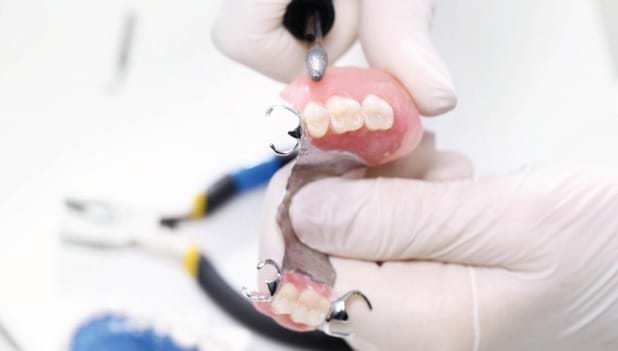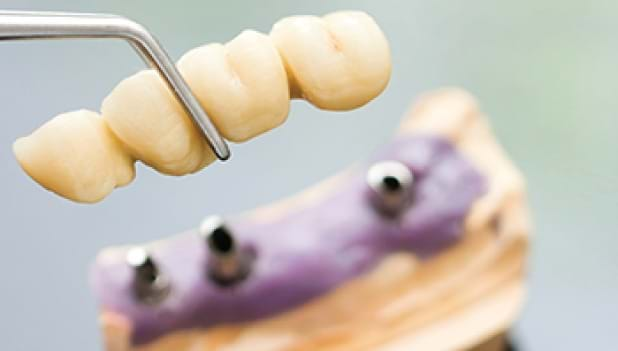Implants & Bridges Which Replacement Is Right For You?
Did you know almost 70 percent of adults between the ages of 35 and 44 are missing at least one permanent tooth? If you’re one of those missing teeth, today dental implants and dental bridges are two ways to replace teeth you’ve lost. Learn which is right for you.
Face the Facts on Dental Implants and Dental Bridges
Before you can make your choice, you must understand the basics. Dental implants are tiny titanium posts that your dentist surgically embeds into the jawbone, which allows the gum tissue to grow around them to hold them permanently in place. The replacement teeth use these posts as bases for connection to fill in the gaps in your smile. Dental bridges are simply frames that feature crowns on both sides and artificial teeth in the middle. These crowns are attached to the teeth surrounding the gap to temporarily hold the frame in place.
A Look at Longevity and Durability
If you want a permanent solution, then go for dental implants because they last at least 25 years and have a 95 percent success rate. This is because dental implants are surgically positioned deep in the jaw to replace the root along with the tooth, which protects your dental health. But dental bridges are simply a temporary answer that must be replaced every 10 to 15 years. See, dental bridges are simply connected by a set of crowns, which have a much shorter lifespan. Plus, dental bridges do not replace the root of the tooth, so the bridge is less secure and the lack of a root over time can pose a risk to your dental health.
Facts and Factors that Determine Your Decision
There are also other aspects that can affect your personal choice of dental implants or dental bridges. These include:
Dental implants are best for healthy people with sufficient jawbone structure to support dental implants.
Dental implants are usually not recommended for children, smokers, diabetics, and people with weakened immune systems because they require surgery for placement.
Dental bridges cost less initially, but their need for later repair and replacement can increase long-term costs, even when placed by an affordable dentist.
Dental implants may be more costly to place, but their strength and longevity eliminates their need for replacement. Yet an affordable dentist can offer options to ease their cost.
For your final decision, talk to your dentist and consider your personal and dental needs.




